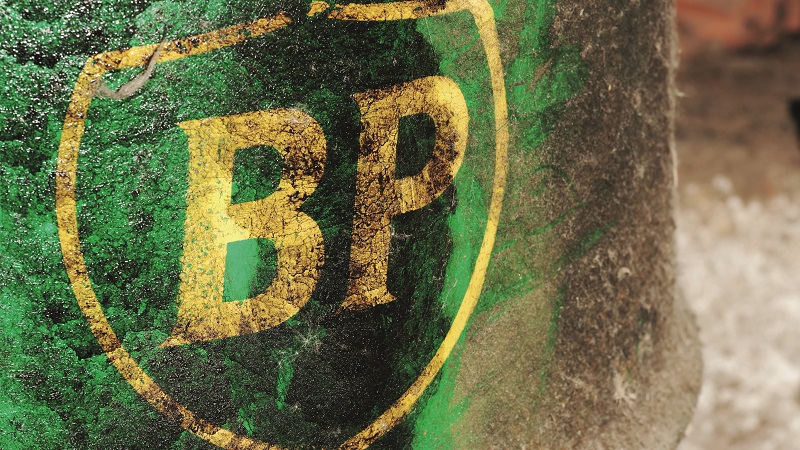BP’s decision to sever ties with Russian oil giant Rosneft could have a nasty ripple effect on the UK equity income sector, with several mega funds having hefty exposure to the stock.
The British oil giant announced it would exit its 19.75% stake in the Russian-state owned business following the invasion of Ukraine. Rosneft is run by Igor Sechin, a close ally of Vladimir Putin.
Shares in the oil giant tanked 7% on Monday morning, though had regained some ground by the afternoon.
The exit is a financially painful one for BP in the short-term, with Rosneft accounting for one fifth of profits.
Hargreaves Lansdown senior investment and markets analyst Susannah Streeter said it is highly unlikely the company will recover anywhere near the full value of its stake in Rosneft, worth an estimated $14bn (£10.4bn). It also robs BP of lucrative dividends which were due to pour in from the Russian business.
“Last year higher oil prices and foreign exchange tailwinds helped BP’s underlying profit from Rosneft rise to $2.7bn from $56m,” Streeter said. “There are now estimates that extricating itself could cost BP up to $25bn.”
200 UK funds have BP in their top 10
The Rosneft shock is yet another blow for the beleaguered UK equity income sector. BP is a staple of the sector due to its track record as a generous dividend payer. The company is expected to pay out £3.3bn in dividends for 2022 or 4% of the entire FTSE 100 total, according to estimates from AJ Bell.
Data from FE Fundinfo shows just shy of 200 funds own BP in their top 10 holdings.
Redwheel’s Nick Purves and Ian Lance are big backers, owning sizeable positions in BP across all their funds, including their £461.3m UK Equity Income fund, as well as the £766m equity income mandate they run for St James’s Place.
The stock is the largest position in Ben Whitmore’s £1.4bn Jupiter Income trust and James Lowen and Clive Beagles’ £2.2bn JOHCM UK Equity Income fund.
It is also a top holding for several ‘value’ style funds, such as the £1.5bn M&G Recovery and £934m Invesco UK Opportunities funds.
UK funds with largest exposure to BP (%)
| SSGA SPDR MSCI Europe Energy Ucits ETF | 19.15 |
| Invesco FTSE RAFI UK 100 Ucits ETF | 9.89 |
| ASI Sustainable Index UK Equity | 8.40 |
| M&G Recovery | 8.10 |
| Scottish Widows Fundamental Index UK Equity | 7.50 |
| Scottish Friendly UK Growth | 7.27 |
| Invesco UK Opportunities | 6.97 |
| Jupiter Income Trust | 6.61 |
| Redwheel UK Value | 6.57 |
| SJP Equity Income | 6.44 |
Source: FE Fundinfo
AJ Bell head of active portfolios Ryan Hughes said there is a risk BP’s Rosneft divestment will have some ripple effect into income payments and rattle performance of the UK equity income sector.
Data from AJ Bell shows 30 UK equity income vehicles have between 10-20% invested in energy companies.
“From a moral perspective, you can absolutely see the stand that the board of BP are taking in not wanting to own a stake in a company that supplies the fuel to Russian military,” Hughes added.
“I think we have to respect that view and acknowledge that, yes, the financial side is painful, but it pales into insignificance given the humanitarian cost that is going on right now.”
Independent wealth consultant Adrian Lowcock said compared to the “baptism of fire” the equity income sector endured during the coronavirus pandemic, the events at BP are “bread and butter” for fund managers who frequently reassess holdings as new information becomes known to decide if their investment case still stands.
“The impact of one, even large dividend payer, can be absorbed in a diversified portfolio,” Lowcock said.
“The sector has time to reallocate capital as BP is trading ex-dividend and the share price is only back to where it was at the start of the year, so a fund can find a replacement stock if they wished to and investor portfolios are likely to barely notice it, especially given the wider volatility and concerns in markets due to the Russian-Ukraine war.”
Investors worry about long-term reputational damage
But considering the scale of the expected impairment charges, Streeter said Monday’s share price reaction is “pretty limited,” illustrating that investors are more worried about the long-term reputational fallout of BP continuing to do business with Russia.
Abrdn applauded BP’s board for taking swift action following Russia’s invasion of Ukraine last week.
“While there may be a significant financial cost to BP in exiting Rosneft it is unquestionably the right thing to do,” head of UK equities Andrew Millington said in an emailed statement.
Abrdn has exposure to BP via several index funds, including Sustainable Index UK Equity.
Passives giant Vanguard is the largest investor in BP with a 3.2% stake, followed by Norges Bank Investment Management (3.1%) and Blackrock Fund Advisors (2.8%).









